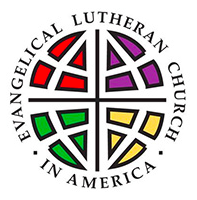
It’s All About Perspective
Feb 25, 2024
Second Sunday in Lent
Text: Genesis 17:1-7, 15-16
Pastor Jean M. Hansen
How we view a situation has to do, to a large degree, with perspective. This week I was visiting one of Faith Lutheran Church’s oldest members. She’s doing great at age 96 and probably is watching from home even as I speak. Still, there are challenges that come with aging which are annoying, which is why our friend said something like, “Sometimes I wish I could be 80 again.” (Evidently 80 seems young when you are 96.) It’s all about perspective, isn’t it?
No doubt Abram and Sarai of today’s Old Testament lesson kept struggling with perspective – their’s versus God’s.
When their story began in Genesis 12, Abram was 75 years old when God came to him with a multi-faceted promise. Abram will become a great nation, his name will be great, the way people treat Abram and his family will call down blessings or curses on them and that all people of the earth will be blessed through them. I’m guessing Abram and Sarai wondered about the probability of this happening, given the fact that Sarai was around age 65, and yet they trusted God.
Well, 11 years passed before God affirmed the covenant again saying that Abram’s very own son will be his heir, and his descendants would be as numerous as the stars in the heavens. But, how? They have no children. At this point Abram and Sarai decide to make the best of a difficult situation. Abram fathers a child – a son named Ishmael- with an Egyptians servant of Sarai’s named Hagar, with Sarai’s encouragement. From their perspective the problem is solved, right?
Another 13 years passes; Abram is 99 and Sarai is 90 years old when God comes again with the third confirmation of the original covenant. It has now been 24 years and the covenant has not been fulfilled, at least not with both Abram and Sarai. Can’t you imagine that at this point Abram is thinking, “Here we go again.” No doubt when God promises to make him the father of many nations, he thinks that this will only happen through his 13-year-old son, Ishmael. After all, it is just not possible for a 99 and 90-year-old man and woman to become parents. That promise is just too extravagant.
Not from God’s perspective … in verse 19, which we didn’t read today, God says, “Your wife Sarah shall bear you a son, and you shall name him Issac. I will establish my covenant with him as an everlasting covenant for his off-spring after him.” God was serious; to show Abram that, he changed his name to Abraham, which means the “father of many”. And since Sarai is essential to this covenant, her name is changed to Sarah, also a sign of the new beginning they are about to experience. God invites them to embrace an entirely new perspective after they had long ago given up on the promise made 24 years earlier.
Last week our focus was on the covenant made by God in the aftermath of the flood, a promise to never again destroy people and all living creatures. It was an unconditional, universal, un-ending and overarching covenant, an example of God’s grace which is not earned or deserved by its recipients.
The covenant we are introduced to today is more limited and has a condition. It’s not with the whole human family, but with one family, Abraham and Sarah and their descendants. The condition is that they must walk before God and be blameless, which is symbolized by the sign of circumcision.
It is, however, an everlasting covenant; God will remain faithful to God’s promise for the generations to come. “I will be their God,” is the proclamation and promise in verse 8. Yet, the question that stretches throughout the Old Testament and into the New Testament is this, when the people fall short, will God keep this promise?
Over and over again obstacles must be overcome. In the story of Noah and the Ark the obstacle is the people’s continued exercising of free will in a negative way, which is overcome when God determines to never again destroy the earth and the people in it. In the story of Abraham and Sarah the obstacles are that a woman past childbearing age is promised that she and her husband will be the ancestors of a great nation; the 24-year wait for this to become a reality and the doubt that overwhelmed them in the midst of those years. Each obstacle is overcome when God keeps God’s promise and, amazingly, Isaac is born.
As Lent unfolds, we will continue focusing on God’s obstacle-challenging relationship with humanity, which includes each of us. God works in and through us to challenge obstacles in our lives and in our world too. As you reflect on that, what have been, and are, the obstacles that have gotten in the way of God being your God, and you being God’s person?
I imagine that the list is as long as the number of people hearing these words. It ranges from making poor choices to impatience with seemingly unanswered prayers to doubt that God even exists to creating God in our own image.
Commentator Barbara Brown Taylor suggests that we spend Lent reflecting on the nature of our own covenant with God and poses these questions: “Upon what does that relationship depend? What do we trust to give us life? If we were to ask God for a new name, what would that name be? What new purpose might that name signify?” (1)
For example, might your new name be “beloved”, signifying that you know who you are, God’s loved and forgiven child? Or, might your new name be “faithful”, signifying your intention to rely on God’s guidance as you walk around or through or over the obstacles of life and faith? Perhaps your new name is “always forgiven”, signifying an on-going need.
Consider this question not only from your perspective, but from God’s perspective. What would the giver of everlasting covenants call you?
Remember, too, that for our forebearers in faith, whose new name was “Followers of Jesus,” the ultimate obstacle to realizing the promise of God was a cross, an instrument of death. Or was it? It’s all about perspective. AMEN
-
Feasting on the Word, edited by David L. Bartlett and Barbara Brown Taylor, 2008 Westminster John Knox Press, Year B, Volume 2, pg. 55






